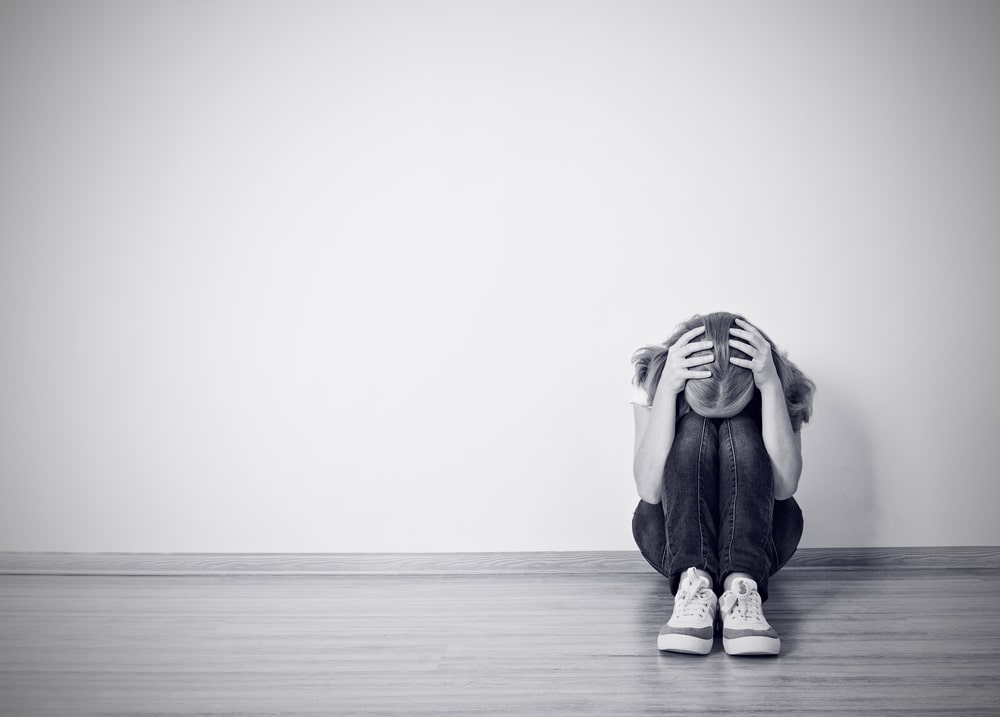
Your 15-year old has been spending more time in their room lately and ignoring your attempts to connect. Their grades have started slipping, they’ve stopped hanging out with their friends, and they seem irritated by even the simplest questions. You tell yourself it’s just normal teenage behavior, but deep down you wonder if it could be something else.
Sometimes, what looks like a teenager “acting out” is actually a sign that your child is struggling more than you realize. Many teens face emotional challenges that go unnoticed, leaving parents unsure of how to help. So, what are the signs and symptoms of teen depression, and how do you know it’s time to step in? Keep reading to learn how to spot the warning signs and support your child.
What is Depression?
Depression is a mental health disorder that is defined by a consistently low mood or a loss of interest in activities that lasts for weeks or longer, according to the World Health Organization. It can affect all areas of one’s life, from relationships and schoolwork to a teen’s physical health.
Common Emotional Symptoms
Teens with depression often experience deep and ongoing emotional changes. Some common emotional symptoms of teen depression include:
- Deep sadness that doesn’t seem to have a clear cause
- Feeling emotionally numb or empty
- Losing interest in hobbies, activities, or socializing
- A sense of hopelessness that things won’t get better
- Irritability or frequent bouts of anger, often without explanation
- Overwhelming guilt or feelings of worthlessness
- Struggling with low self-esteem or confidence
Parents, teachers, and caregivers should pay attention to consistent changes in mood or emotional patterns that may signal depression.
Common Behavioral Symptoms
Aside from affecting how a teenager feels, depression can also affect how they act. Behavior that seems careless or out of character might actually be an indication that something else is going on. Behavioral symptoms to watch for include:
- Neglecting personal hygiene and appearance
- Engaging in self-harm or showing signs of suicidal ideation
- Withdrawing from friends, family, and activities they once enjoyed
- Difficulty focusing on school, work, or entertainment
- Sleeping too much or struggling with insomnia
- Turning to drugs or alcohol as a way to cope
- Taking unnecessary risks like reckless driving
These behaviors can be alarming, but they are often cries for help.

Normal Teenage Angst vs. Depressive Behavior?
Parents of teenagers are no stranger to the mood swings, the slammed bedroom doors, and the hours spent holed up in their bedrooms. These behaviors can be frustrating, but they are a natural part of adolescence as teens navigate the transition from childhood to adulthood.
During this phase, teenagers experience intense emotions that are connected to finding their identity, managing peer pressure, juggling academic stress, and adapting to hormonal changes. These ups and downs are usually temporary and related to specific situations.
Depression is different in that it’s not just a phase or a reaction to stress. Rather it’s an ongoing mental health condition that can negatively affect every part of a teen’s life. Unlike typical teen angst, depression sticks around and can make it hard for teens to enjoy life or function day to day.
Additionally, depression doesn’t always show up in the same way it does for adults. While adults with depression might lose their appetite or sleep too much, teens may eat more or struggle to sleep at all. Adults might pull away from intimate relationships, but teens may act out with risky or impulsive behavior instead. The most difficult thing for parents is figuring out what behavior is normal and what behavior is not.
Why Adolescents Might Experience Depression
Adolescence is a time of major physical, emotional, and social change which can make teens more susceptible to depression. Some things that may contribute include:
- Hormonal changes, which can affect brain chemistry and mood regulation
- Stressful events, like trauma, bullying, or abuse
- Family conflict, which creates an unstable environment, affecting emotional well-being
- Excessive social media use, which can overstimulate the brain’s reward center, creating effects that are similar to addiction
Is Teen Depression Hereditary?
Yes, depression in teenagers can have genetic links. Research shows that certain patterns of depressive symptoms are tied to genetic risks that are shared across multiple psychiatric conditions. Teens with persistent depression often have a higher genetic predisposition to mental health disorders, including anxiety and mood disorders.
Not only is depression hereditary, but it can be caused by one’s environment. Studies from Penn State and Michigan State found that paternal depression impacts teen depression and behavior problems, regardless of genetic relationships. This was consistent even in adoptive or stepfamilies, showing how a father’s mental health can influence their children’s mental well-being.
Diagnosis and Treatment for Teen Depression
Getting a proper diagnosis and treatment plan for teen depression can help your teen manage their symptoms and feel better during this crucial period of growth. Since depression looks different for every teenager, an in-depth evaluation by a medical professional is recommended to fully understand what they’re going through. Treatment may include therapy, lifestyle changes, and sometimes medication.
When Should Your Teen See a Doctor?
If your teen’s changed behavior begins to negatively affect their academic, social, and home lives or makes you genuinely concerned for their safety, it may be time to seek medical help. Early intervention can not only help your teen feel better quicker, but it can also prevent something more serious from happening, such as self-harm or suicide.
When you see a mental health medical provider, they will most likely use tools like the PHQ-9, the PHQ-A, or the Center for Epidemiologic Studies Depression Scale for Children to measure how severe the depression is for your child. These mental health screenings can help the doctor identify patterns in emotions and behaviors that could point to a deeper issue.
An evaluation will also look at physical symptoms to rule out other possible causes like thyroid issues or substance use. Since teens may not always share everything, input from parents, teachers, or caregivers can be beneficial. While teens are better at explaining how they feel internally, adults can provide an outsider’s perspective of how their behavior has changed in school or at home.
Depression Medication for Teen Depression
Once your doctor has diagnosed your teen with depression, they may decide to treat moderate to severe symptoms with medication. Currently, only two medications are approved by the U.S. Food and Drug Administration (FDA) for treating major depressive disorder in children and teens. Fluoxetine (Prozac) is approved for children as young as eight, while escitalopram (Lexapro) is approved for those aged 12 and older.
These medications belong to a class called selective serotonin reuptake inhibitors (SSRIs) and help balance brain chemistry to improve mood. A doctor should monitor any medication use to ensure the proper dosage and address any negative side effects.
Other Treatment Options to Consider
While medication can be effective on its own, it is often recommended that it be combined with therapy for the best results. Therapy can provide your teen with practical strategies for managing their emotions, improving their relationships, and building resilience. Two therapies to consider are:
- Cognitive behavioral therapy (CBT) teaches teens how to find and shift negative thought patterns and behaviors. It helps them build better coping skills and find ways to overcome negative emotions.
- Interpersonal psychotherapy (IPT) helps teens strengthen their relationships and improve communication. It encourages them to address conflicts with family and friends in a healthier way.
In addition to traditional talk therapy, other treatment options may be beneficial for your teen:
- Group therapy provides a supportive environment where teens can connect with others who share similar struggles. This can help them feel less isolated.
- Mindfulness and meditation techniques can teach teens how to manage stress, stay present, and regulate their emotions.
- Exercise and physical activity can boost mood by releasing endorphins and reducing stress levels.
- Dietary counseling can help your teen better understand how their food choices affect their mental health.
- Family therapy can strengthen communication and address the family dynamics at home that may be contributing to your teen’s depression.
There is no one-size-fits-all solution when it comes to treating teen depression. It may take time and trying different treatments or combinations of treatments to find what works best for your teenager. This process can be overwhelming and frustrating for them, so it’s important that you remain patient and supportive.
Help Your Teenager Overcome Their Depression
Depression in teenagers is a serious but treatable condition. Recognizing the signs and symptoms of teen depression early and getting professional support can help your child better manage their symptoms and feel more like themselves again. If you think your teen might be depressed, reach out to a mental health specialist today to explore your treatment options.
Get Help Now
Alcohol addiction is extremely difficult to overcome on your own.. Seek specialized help and let professionals guide you in your recovery.

